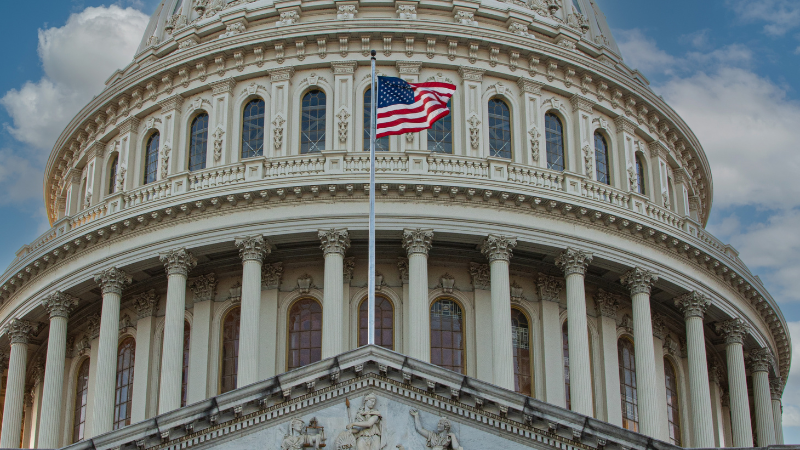
CHICAGO, May 29, 2025 — Amid the uncertainty over tariffs and taxes, the food-away-from-home industry has scored several clear legislative victories at the state and local levels.
Yet political challenges continue to arise even within those realms. Witness the emergence of a $30-an-hour minimum wage as a campaign issue in New York City’s mayoral race.
Here’s a roundup of industry-affecting developments that have unfolded outside of the nation’s capital.
In the wake of the pandemic and a barrage of major natural disasters, food purveyors are seeing their insurance rates soar—if they can maintain coverage at all. What used to be an incidental line item is emerging as yet another squeeze on profit margins. No wonder 38% of U.S. restaurants don’t have business insurance, as compared with 29% who were uncovered a year ago, according to the online coverage provider Next Insurance.
But the business is pushing back. Last week, South Carolina Gov. Henry McMaster signed a tort reform bill that holds the promise of lowering the charges for alcohol-serving restaurants’ liability insurance.
There’s an upfront cost involved: Establishments with a bar are required to have their employees take a responsible-server course. But in exchange, their insurance rates should come down.
Similarly, places that install scanners to verify the validity of a patrons’ proof-of-age materials will be extended a rate discount, as will establishments that opt to close by midnight.
Other provisions are nerdier. Essentially, the bill allows a jury to assign a percentage of responsibility to anyone involved in a liquor-related liability suit. The person who over-imbibes might be held 60% accountable, for example, while the establishment might be viewed as 40% responsible. Any awarded compensation would be adjusted accordingly, instead of assuming the restaurant or bar should be 100% liable.
Under the new law, the forms used by juries to deliver a verdict and set an award amount will include a provision to break down the responsibility.
The measure promises to reduce the amounts that restaurants will have to pay if they were found to have culpability.
Lawmakers in Anchorage, Alaska, are expected to roll back a requirement for liquor-serving establishments that was imposed just two months ago.
Since then, restaurants and bars have been required to check the proof-of-age materials for every patron even if they are obviously over age 21. The provision is intended to deny alcohol to customers who are forbidden by court order from buying beer, wine or liquor, most probably because they were already convicted of driving under the influence. Their licenses carry a red stripe to flag the bearer as someone not to be served.
The well-intentioned measure has proved a headache for local operations. Elderly patrons who may no longer drive have been denied a glass of wine or beer because they no longer carry a license with them. Walk-in customers may have similarly been denied service because they left their proof of age at home or in their hotel rooms.
A measure slated for hearings and a possible vote on June 10 would drop the proof-of-age requirement for the customers of restaurants, bars and breweries, while keeping it in place for liquor stores.
Even by New York City standards, the current mayoral race is shaping up to be a doozy. Never before has the field included an incumbent pardoned from a five-count criminal indictment, a one-time governor who resigned the post in disgrace, and a proudly self-pronounced socialist.
Amid that circus, at least two contenders are courting organized labor with calls for audacious increase in the city’s minimum wage. Former New York governor Andrew Cuomo aired a pledge this week to raise the pay floor if elected mayor to $20 an hour by 2027, from the current level of $16. He underscored his promise by noting how he’d hiked the statewide minimum while governor to $15 an hour, at the time one of the highest rates in the nation.
But that was before he resigned amid allegations of improperly interacting with female staffers and generally mistreating his staff.
Opponents immediately scoffed at Cuomo’s promise because he’d need the buy-in of current New York Gov. Kathy Hochul, his onetime subordinate, with whom he had a less-than-rosy relationship.
Cuomo’s pledge pales in comparison to the wage stance taken by Zohran Momdani, currently a state assemblyman from the New York City borough of Queens. An acknowledged socialist, Momdani has called for raising the city’s minimum wage to $30 an hour by 2030.
Both Cuomo and Momdani are vying to be the Democratic candidate. Incumbent Mayor Eric Adams hasn’t called for a wage hike, but his administration recently raised the minimum pay for food delivery workers to $21.44 an hour.
As Managing Editor for IFMA The Food Away from Home Association, Romeo is responsible for generating the group's news and feature content. He brings more than 40 years of experience in covering restaurants to the position.